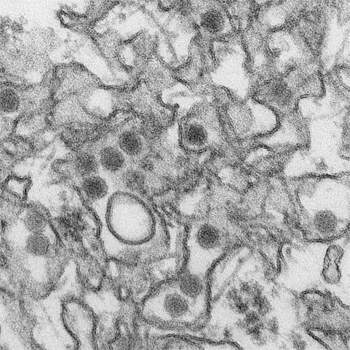CDC Changes Reporting of Numbers of Pregnant Women affected by Zika Virus
For Immediate Release: Friday, May 20, 2016
To gain a more complete picture of the impact of Zika virus infection during pregnancy, the Centers for Disease Control and Prevention (CDC) today will begin reporting the total number of pregnant women with Zika virus infection from two newly established enhanced surveillance systems: the US Zika Pregnancy Registry and the Puerto Rico Zika Active Pregnancy Surveillance System. As of May 12, 2016, the two Zika virus infection surveillance systems are monitoring 157 pregnant women in the U.S. states and 122 pregnant women in the U.S. territories with laboratory evidence of possible Zika virus infection. That is a total of 279 pregnant women in U.S. states and territories. These new numbers reflect a broader group of pregnant women—pregnant women who have any laboratory evidence of possible Zika virus infection, and whether or not they recalled symptoms —compared with numbers previously reported. This new way of reporting numbers aligns with recommendations for ongoing monitoring of pregnancies at risk for poor outcomes associated with Zika, based on scientists’ current understanding of the effects of Zika virus infection during pregnancy.
Until today, CDC has reported the number of people with Zika virus disease using a case definition established in consultation with the Council for State and Territorial Epidemiologists, which included only individuals who had laboratory test results and symptoms or pregnancy complications consistent with Zika. However, recently published reports indicate that some pregnant women with laboratory evidence of a recent Zika infection but without symptoms have delivered infants with microcephaly and other serious brain defects. Therefore, starting today, CDC will report numbers of pregnant women with Zika from the US Zika Pregnancy Registry and the Puerto Rico Zika Active Pregnancy Surveillance System, two systems designed to collect information about pregnancies and birth outcomes among women with any laboratory evidence of possible Zika virus infection, with or without symptoms.

CDC’s top priority for the Zika response is to protect pregnant women and their fetuses. The range of health effects linked with Zika infection during pregnancy as well as how many and which pregnancies may be at risk of poor outcomes are essential pieces of information for the public health response to the Zika outbreak. Reporting the total number of pregnant women with any laboratory evidence of possible Zika virus infection from the US Zika Pregnancy Registry and the Puerto Rico Zika Active Pregnancy Surveillance System will provide a more comprehensive picture of the effects of Zika in U.S. states and territories. This information will help healthcare providers as they counsel pregnant women affected by Zika and is essential for planning at the federal, state, and local levels for clinical, public health, and other services needed to support pregnant women and families affected by Zika.
Click here for more info about Zika and pregnancy.


